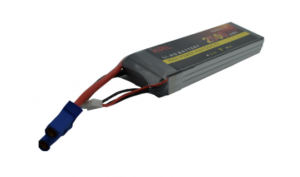All lithium-ion batteries are afraid of overcharge and short circuit. When the battery is overcharged and discharged, the internal temperature of the battery continues to rise, the gas generated during activation expands, the internal pressure of the battery increases, and the pressure reaches a certain level. If the casing scars, it can rupture, causing fluid leaks, fires, and even explosions. Due to the use of colloidal electrolytes, ordinary polymer lithium-ion batteries will not explode due to the production of a large amount of gas due to the boiling of the liquid, which improves the safety.
Compared with liquid lithium-ion batteries, polymer lithium-ion batteries have the advantages of thinness, any area, and any shape. Therefore, the battery shell can be made of a lighter aluminum-plastic composite film, thereby increasing the specific capacity of the entire battery; polymer lithium-ion batteries can also use polymers as negative electrode materials, and their energy will be higher than that of current liquid lithium-ion batteries. In addition, polymer lithium-ion batteries are superior to lithium-ion batteries in both operating voltage and charge-discharge cycle life. Based on the above advantages, polymer lithium-ion batteries are called next-generation lithium-ion batteries.
At present, most of the domestic polymer batteries are only soft-packed batteries, with aluminum-plastic film as the shell, and the electrolyte has not changed. Such batteries can also be thinned and have better low-temperature discharge characteristics than polymer batteries. The energy density of the material is basically the same as that of liquid lithium batteries and ordinary polymer batteries, but due to the use of aluminum-plastic film, it is lighter than ordinary liquid lithium batteries. In terms of safety, when the liquid boils, the aluminum-plastic film will naturally rupture and will not explode.
Post time: Jan-14-2022





